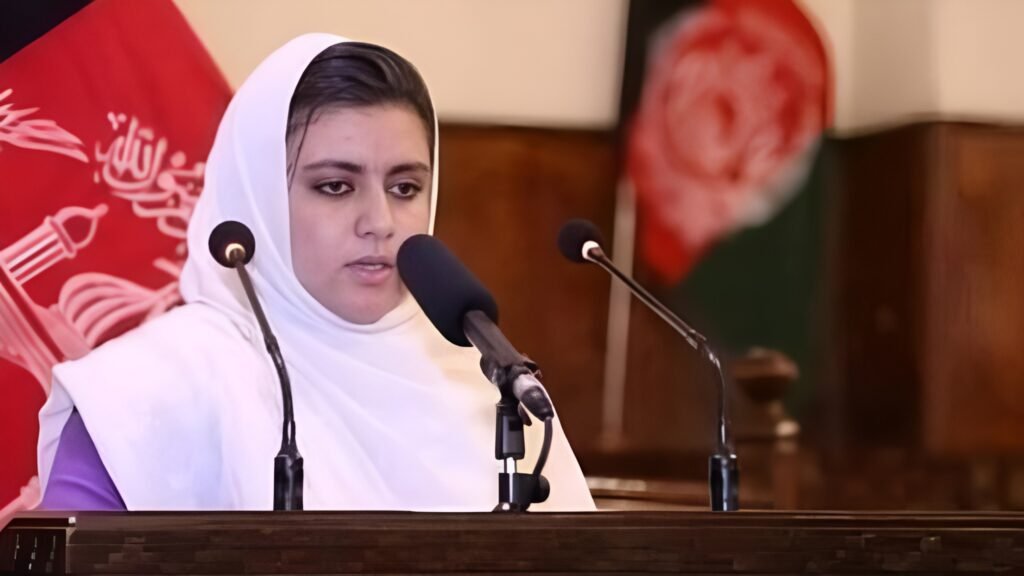Malala Maiwand

In the turbulent and challenging history of Afghanistan, the name Malala Maiwand shines like a bright light amidst the darkness of years marked by war, violence, and censorship. She entered the field of journalism at a time when speaking the truth could cost one’s life, and being a woman alone required extraordinary courage. Despite all threats and limitations, Malala decided not to remain silent and chose to be the voice of those who had lived for years in fear and silence.
She was not only a passionate and professional journalist but also the awakened conscience of a silent society. In an era when many women were deprived of the right to speak, Malala broke the boundaries of fear with her pen and microphone and boldly voiced the truth. Her voice echoed the pains, hopes, and dreams of thousands of Afghan women hidden behind the walls of tradition and war.
Through her reports, Malala Maiwand did not merely report the news; she narrated the lives of people who, amidst ashes and despair, still believed in a brighter tomorrow. She wrote about women who, even among ruins, were still building schools, and about girls who courageously held books in their hands to change the future.
She stood against silence, resisted fear, and with every word, lifted a veil of truth. Malala was not only a journalist but also a voice of justice, hope, and light in a country long deprived of the illumination of free expression. The path she forged continues to inspire a generation of Afghan women who believe that a woman’s voice can change the world.
Childhood and Early Interest in Journalism
Malala Maiwand was born in the 1990s in Maidan Wardak province. Her family valued culture and knowledge, and from an early age, she was drawn to reading, writing, and following the news. Witnessing the difficult conditions faced by women and the widespread restrictions on education and work, Malala decided to become the voice of the unheard.
After completing her secondary education, she joined local media outlets. She began reporting in Nangarhar and Kabul provinces, and her sharp, inquisitive perspective quickly gained attention from both audiences and media professionals.
Entering the World of Media
Malala worked in local television and radio networks, producing programs that focused on women’s rights, girls’ education, challenges faced by journalists, and social issues in Afghanistan. She believed that media should reflect the realities of society, even when those realities were harsh or dangerous.
She once said:
“Journalism is not just a job for me; it is a moral responsibility. We must tell the truth, even if it costs our lives.”
This conviction shaped her entire career.
Focus on Women’s Rights and Freedom of Speech
Malala dedicated much of her work to issues often ignored by society, including violence against women, forced marriages, poverty, and unequal access to education. She courageously amplified the voices of women who were silenced by fear.
Her reports drew attention from both the national and international community, highlighting the challenges Afghan women faced and encouraging broader discussions on women’s rights.
Challenges, Threats, and Dangers
In a country where journalism often comes with the risk of death, Malala Maiwand faced repeated threats. Extremist groups and opponents of free speech frequently targeted her and her colleagues. Yet she never stepped back.
Malala understood the risks but believed that silence was worse than death. She once said:
“If we remain silent, oppression continues. I would rather give my life for the truth than live in fear.”
Martyrdom and Lasting Impact
In December 2020, while on her way to work in Nangarhar, Malala Maiwand was tragically killed in a targeted attack. Her death sparked waves of grief and outrage across Afghanistan and around the world. Many journalists and activists hailed her as a symbol of a generation of courageous Afghan women fighting for freedom and justice.
Her life and work highlighted the high cost of free speech in Afghanistan. However, her legacy did not die with her; it continues to inspire journalists and young Afghan women to speak the truth despite danger.
Symbol of Courage and Voice for Afghan Women
Malala Maiwand became a role model, especially for young Afghan women. Through her presence on media platforms and her fearless reporting, she demonstrated that women could excel in the traditionally male-dominated field of journalism.
In a society where female journalists often face severe opposition, Malala’s confidence and skill broke stereotypes, proving that being a journalist knows no gender.
Legacy of Malala Maiwand
Malala’s contributions left a lasting mark in several key areas:
- Awareness and Enlightenment: She demonstrated that knowledge can be more powerful than any weapon.
- Role Model for Female Journalists: Her courage paved the way for more women in Afghan media.
- Symbol of Resistance Against Silence: She showed that even in darkness, one can shine a light.
- Commitment to Journalistic Ethics: Her reporting was grounded in honesty, impartiality, and responsibility.
Conclusion
Malala Maiwand’s short but impactful life taught us that freedom of speech is not a privilege to be taken lightly—it is earned through courage, dedication, and perseverance. Through her words and actions, she wrote in the history of Afghanistan: “Women of this land can speak, can act, and can change the world.”
Her name remains forever alongside other heroic Afghan women, such as Fereshteh Forough and Nilofar Rahmani, as a symbol of hope, awareness, and resilience.